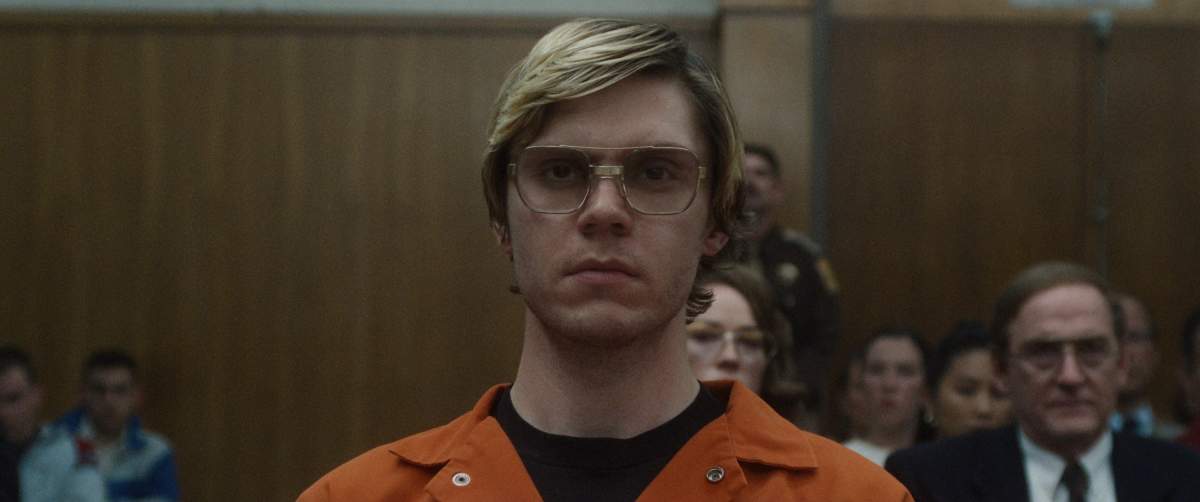A new Netflix series about the infamous serial killer Jeffrey Dahmer is sparking some important conversations around mental health and social injustice issues.

The series is called Dahmer — Monster — the Jeffrey Dahmer story, it was directed by Ryan Murphy and currently has an 84 per cent audience rating on rotten tomatoes.
The show is a dramatization of the real-life events that occurred in Milwaukee, Wisconsin from 1978 to 1991, where Dahmer, also known as the “Milwaukee Cannibal” murdered, dismembered, and ate some of his victims — seventeen men and boys.
Currently, it is the fourth most-watched series on Netflix with many people reviewing and talking about it, including here in Winnipeg.
The story of Dahmer is harrowing, violent, and disturbing, so why is it so popular? Local Clinical psychologist Dr. Jay Greenfeld thinks it’s to do with the rarity of the crime.
“It was so unusual, it was so rare and anytime there’s anything that distinctly rare, people gravitate towards it,” he said. “The acts in which he was engaging were so extreme that people become fascinated.”
The show opens with a scene of Dahmer eventually getting caught for his crimes by police and then it works backward through his criminal history, starting from when he was a child right up until his first kill.
The role is played by actor Evan Peters and it gives the audience a front-row view of Dahmer’s mental state at a time when mental health wasn’t taken as seriously.
“The increase in both need and awareness of mental health is significantly different now than it was then,” said Greenfeld.
“Back then although it was becoming a little more apparent, it was still something that wasn’t talked about.”

Get breaking National news
Greenfeld said the story is a perfect example of what can happen when people can’t or don’t access resources for mental health.
However, the deep dive into Dahmer’s life and his mental struggles led to some audience members to feel sympathetic for the killer.
“It annoys me that I felt sorry for him,” said Ross Ward of Winnipeg.
While this is an uncomfortable feeling, Greenfeld says it is quite normal to feel.
“You’re not gonna feel bad for the person for what they did or what they do or certain actions,” he said. “But you can feel bad for how they felt that led them to the actions.”
The show also highlighted Dahmer’s internal struggles with his sexuality at a time when it was not accepted, as well as a broken police force regarding systemic racism and homophobia.
The show goes on to put the viewer in the shoes of Dahmer’s victims, including making the camera foggy and shaky to simulate the victims having been drugged.
“I had such hesitance watching it,” said Jay Jimenez of Winnipeg’s LGBTQ+ community. “I definitely felt uncomfortable, like I was feeling my heart and I was like wow, I don’t really get this with horror movies. It felt very voyeuristic, as a queer person, it really is putting me in there.”
Jimenez found the series to be quite traumatizing and questioned why it was made in the first place.
“If there have already been documentaries about this, why did two white guys decide to make a show about queer POC suffering?” he said.
“Apparently it’s one of Netflix’s most popular series, ever. It was made to be popular so who is this benefiting? I get there’s now lots of awareness about it but there’s also a lot of people that are getting re-traumatized.”
While Jimenez has reservations about the show he does understand how it could affect different audiences.
“I wonder if a straight person watching this, there will definitely be a different effect because it is still suspenseful, but perhaps less personal in a way,” he said. “Maybe I am not the target audience for this.”
The show was very graphic in some scenes and it has raised a lot of discussion as to whether it needed to be so graphic to get the message across.
“His story was already very scary and crazy and intense,” said Jimenez. “Are there things that they could’ve changed or maybe just implied?”
However, some people feel the scenes need to be graphic to tell the story accurately.
“He’s that much of a notorious serial killer, I feel like everybody should know exactly how brutal he was,” said Ward. “I think sometimes you need to deliver things powerfully so people actually know the extent of what he was capable of and what he did.”
Netflix had the series tagged under “LGBTQ+” but has since removed the tag. Jimenz says the show is bad representation for the community.
“There’s a lot of people that are just making light of the situation,” he said. “I am not saying the story of Jeffrey Dahmer can’t be told or the stories of the victims can’t be told. It’s all about a shift in perspective, I am glad they do it later in the episodes, but it’s still titled the ‘Jeffrey Dahmer story’.” he added.
Jimenz is hoping in terms of LGTBQ+ representation that more people watch important LGBTQ+ shows and movies that aren’t related to trauma or death.













Comments